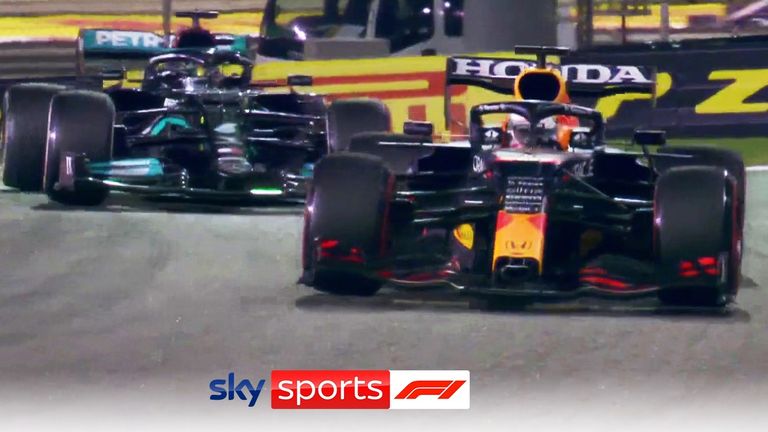The final lap of the 2021 Formula 1 Abu Dhabi Grand Prix is etched into the memory of every motorsport fan. It was a moment of unprecedented drama, a season-long duel between Lewis Hamilton and Max Verstappen that culminated in a decision that would ignite a firestorm of controversy.
For years, the narrative has been centered on one man: then-FIA race director Michael Masi, whose handling of a late-race safety car period effectively handed the world championship to Verstappen. But what if that narrative is incomplete?
What if Masi wasn’t the architect of Hamilton’s downfall, but merely a convenient scapegoat in a far more complex and calculated power play?
A deeper look into the events suggests that the controversy runs much deeper than a single questionable call, implicating powerful figures and teams who all had something to gain from the chaos.

At the heart of this revised history is the idea that Michael Masi was a “sacrificial lamb,” a figurehead pushed into the line of fire to absorb the public’s fury and protect the interests of more influential players. The aftermath of the race certainly lends credence to this theory. Masi was swiftly and quietly removed from his role. He was made to sign a non-disclosure agreement, effectively silencing him from ever telling his side of the story. If this was a simple case of human error, why the intense secrecy? The FIA’s actions suggest a desperate attempt at damage control, a move designed not just to appease angry fans, but to ensure the full story of what transpired in the shadows of the Yas Marina Circuit would never come to light. The suggestion is that Masi was following orders or acting under immense pressure from forces determined to see a new champion crowned, and his public shaming was the price of their victory.
While the FIA’s handling of the situation is suspicious, the focus inevitably shifts to Red Bull Racing. Team principal Christian Horner was a man under immense pressure heading into the 2021 season. After years of Mercedes dominance, another failed title bid could have spelled the end of his tenure. With everything to lose and a championship to gain, the narrative suggests Horner was prepared to do whatever it took to win. This brings us to the curious case of Sergio Pérez, Verstappen’s teammate. His tenacious, borderline-aggressive defense against Hamilton earlier in the race was lauded as legendary, but it’s his late-race retirement that raises serious questions.
On lap 56, just before the fateful crash by Nicholas Latifi that triggered the safety car, Pérez was called into the pits to retire his car due to a supposed engine issue. The timing was almost too perfect to be a coincidence. Statistically, the probability of this specific failure happening at that exact moment was a minuscule 0.011%. It was Red Bull’s only mechanical DNF of the entire season. This has led to a compelling theory: that Red Bull deliberately under-fueled Pérez’s car or had a kill switch ready. The plan might have been for Pérez to stop on track, manufacturing a safety car if the race wasn’t going their way. Latifi’s crash simply meant they didn’t have to play that card, but the convenience of Pérez’s DNF remains a glaring anomaly in a sport defined by precision and data. It suggests a level of strategic ruthlessness that goes beyond on-track tactics and into the realm of calculated manipulation.
Perhaps the most shocking and counterintuitive theory to emerge from the Abu Dhabi ashes is that elements within Hamilton’s own team, Mercedes, may have had their own motivations for not wanting him to secure a record-breaking eighth world title. This line of thinking centers on team principal and one-third owner, Toto Wolff. First and foremost, Wolff is a shrewd businessman. While an eighth driver’s title for Hamilton would have been historic, it would have been Hamilton’s story. The narrative would have revolved entirely around the driver, potentially overshadowing the team’s own monumental achievement: an eighth consecutive constructor’s championship.
In the immediate aftermath of Hamilton being “robbed,” Wolff was seen celebrating the team’s victory, a jarring image that some believe revealed his true priority. Furthermore, the injustice of the situation created a powerful new narrative for Mercedes. Hamilton became a wronged hero, a martyr in the eyes of the public. This wave of sympathy translated into unprecedented fan engagement, media coverage, and, ultimately, increased revenue and brand value for Mercedes. The controversy made Hamilton and Mercedes more talked about than a straightforward victory ever could have.

Wolff’s complex web of business interests also invites scrutiny. His ownership stakes in other teams, like Aston Martin, have previously raised questions about conflicts of interest. His political maneuvering within the F1 paddock has long suggested an ambition for a higher role in the sport’s governance. A Hamilton victory would have cemented the status quo, but the fallout from Abu Dhabi created a power vacuum and a period of instability that a savvy operator like Wolff could potentially exploit for long-term strategic gain. The relationship between Wolff and Hamilton has always been portrayed as a strong partnership, but incidents over the years, including Wolff suggesting Hamilton consider other teams back in 2016, reveal it was always a business arrangement. The team’s farewell message to Hamilton, “every dream needs a team,” which the driver reportedly asked to be removed, hints at an underlying power struggle and a transactional dynamic that was often hidden from public view.
When you piece these theories together, the 2021 Abu Dhabi Grand Prix transforms from a story about one man’s mistake into a gripping drama of ambition, strategy, and potential betrayal. It was a perfect storm where the desperation of Red Bull, the conflicting priorities of Mercedes, and the political machinations of the sport’s governing bodies all converged on that final, chaotic lap. Michael Masi may have been the one to make the call, but it seems increasingly likely that he was just a single actor in a play with a predetermined conclusion. The real story isn’t about who pressed the button, but about who built the machine and pointed it in the right direction. For Lewis Hamilton, it was a devastating loss that denied him his place in history. For Formula 1, it was a moment that exposed the uncomfortable truth that in a billion-dollar global sport, sometimes the narrative is more powerful than the race itself.





